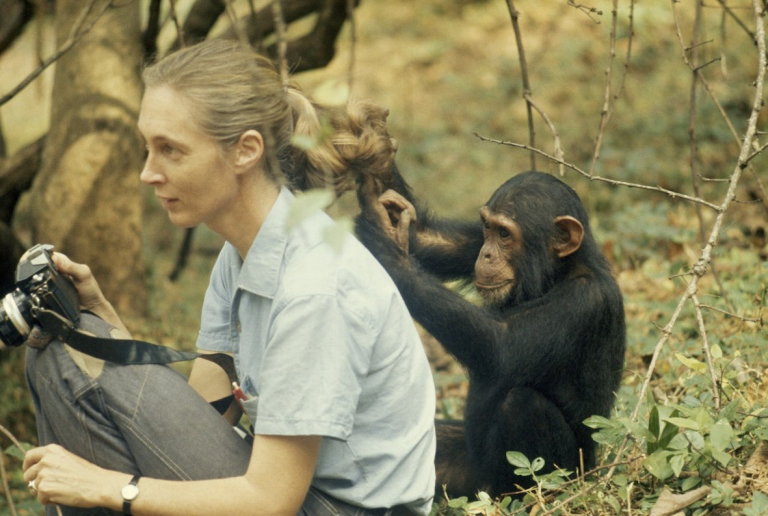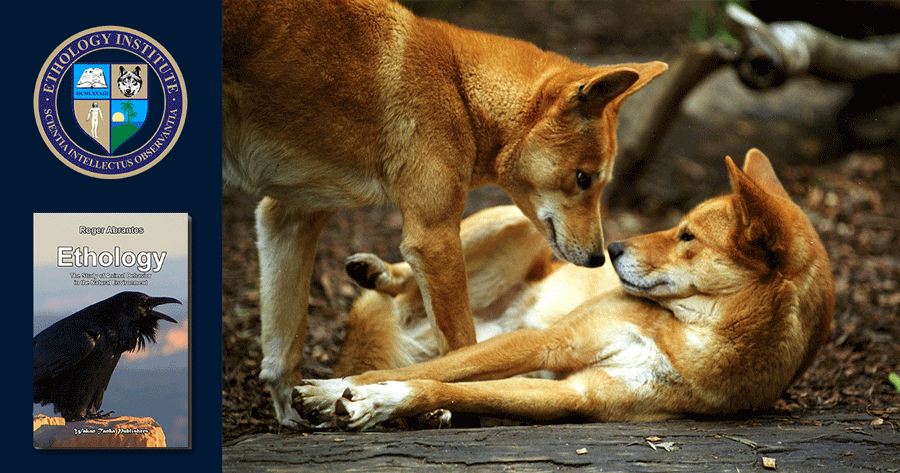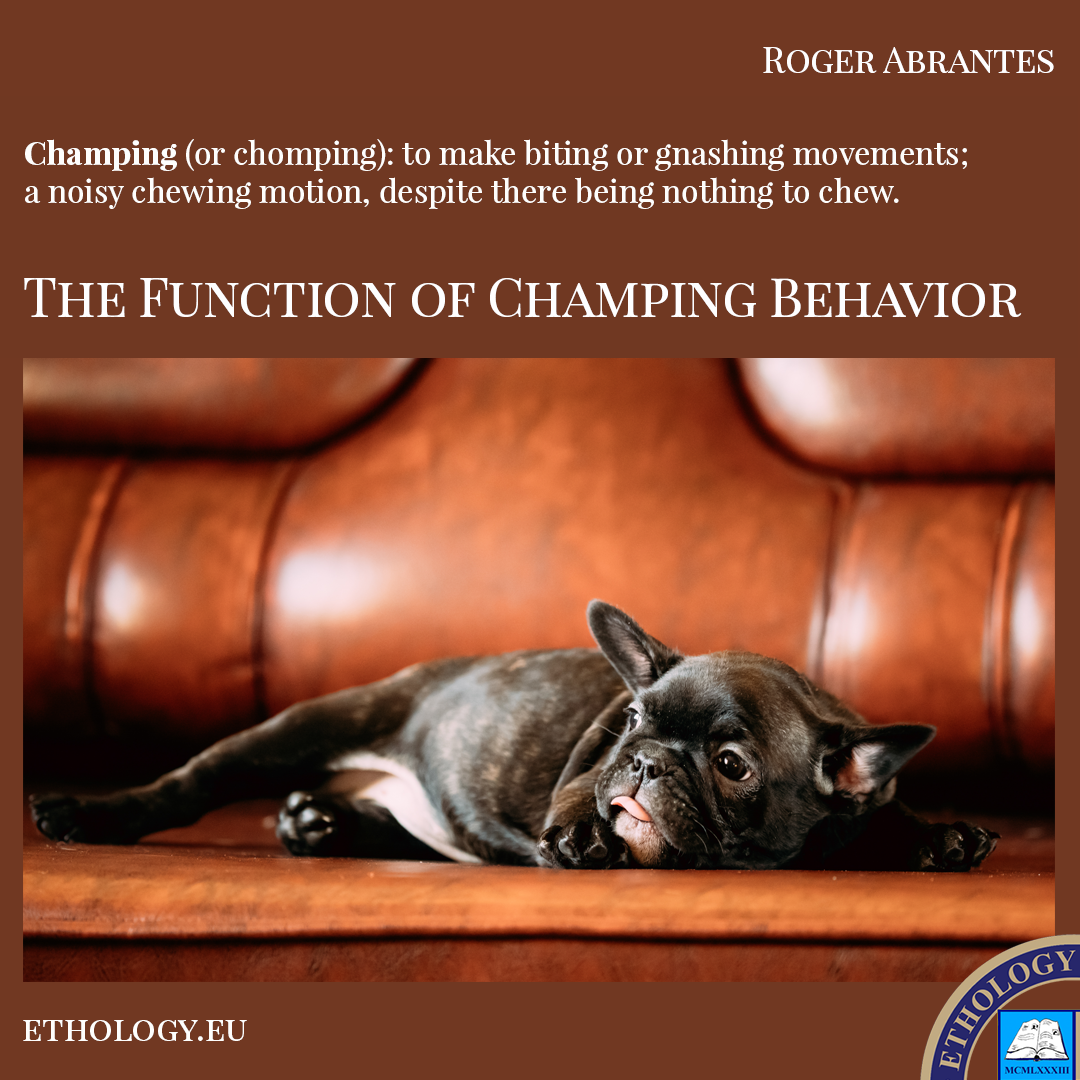Champing (or chomping) is a noisy chewing motion, despite there being nothing to chew. This behavior is associated with friendliness, pacifying of an opponent, insecurity, or submission, depending on degree and context.
There is a pacifying element in all forms of champing. Pacifying behavior (Latin pacificare, from pax = peace and facere, facio = to make) is all behavior with the function of decreasing or suppressing an opponent’s aggressive or dominant behavior or restoring a state of tranquility. Licking, nose poking, muzzle nudging, pawing, yawning, and twisting are common pacifying behaviors that dogs offer one another and us.
Champing is a behavior widely used by canines in situations ranging from mild unease to more severe concern.
Champing is one of the first sounds that puppies hear—their sibling’s suckling. It is, therefore, a sound associated with satisfaction. Redirection of the champing behavior assumes later a pacifying function—attempting to turn an unpleasant situation into a pleasant one. Initially, the pups connect champing with the appeasement of hunger.

Jane Goodall used to break a branch and pretend to chomp on it to pacify chimpanzees showing some unease (photo by Derek Bryceson/National Geographic Creative).
Champing is a straightforward and efficient way to show friendliness towards a dog. Curiously, this behavior appears to have a relaxing effect on most mammals. Newborn mammals suckle and connect sucking sounds (chomping) with pleasant and desirable consequences. Jane Goodall points out that she used to break a twig and pretend to champ it to pacify chimpanzees showing some unease. I often use chomping when in the presence of dogs and horses showing some degree of distress.
Featured image: Champing behavior has a pacifying function—attempting to turn an unpleasant situation into a pleasant one.
Featured Course of the Week
Ethology Ethology studies animal behavior in its natural environment. It is one of the fundamental courses in your curriculum. A reliable knowledge of animal behavior is the basis to create a satisfying relationship with any animal we train.
Featured Price: € 168.00 € 98.00

Learn more in our course Ethology. Ethology studies the behavior of animals in their natural environment. This is a fundamental course for the serious student of animal behavior as well as animal trainers. Roger Abrantes wrote the textbook included in the online course as a beautiful flip page book. Learn ethology from a leading ethologist.


